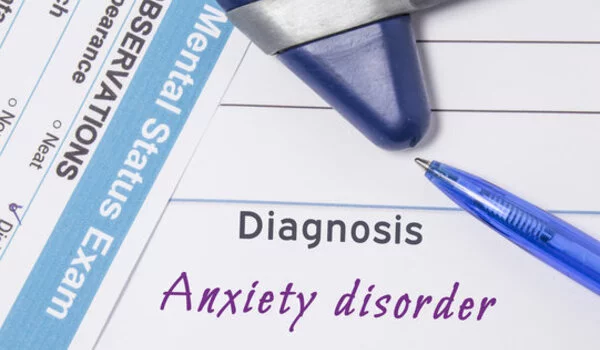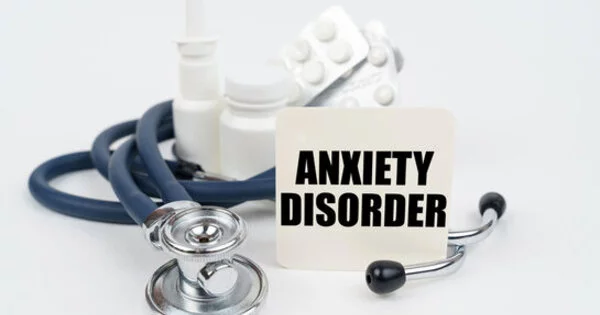Treatment for depression and anxiety disorders typically involves a combination of therapy and medication. Cognitive behavioral therapy (CBT) is a type of therapy that can help individuals identify and change negative thought patterns and behaviors that contribute to their depression or anxiety.
Antidepressant medications, such as selective serotonin reuptake inhibitors (SSRIs), can also be effective in treating depression. Antidepressant medications work by adjusting the levels of certain chemicals in the brain, called neurotransmitters, that are thought to be involved in regulating mood.
For anxiety disorders, medications such as selective serotonin reuptake inhibitors (SSRIs) and benzodiazepines can be used. SSRIs help to correct imbalances in neurotransmitters that are thought to be involved in anxiety, while benzodiazepines can help to reduce feelings of anxiety and promote relaxation. It’s important to work with a qualified mental health professional to determine the best treatment plan for you.
Various drug classes are currently available for the treatment of mental illnesses such as depression and anxiety disorders. However, while these drugs provide benefits, they are also associated with negative side effects. As a result, medical researchers are constantly striving to improve the pharmacological properties of therapeutic agents in order to maximize the benefit-to-side-effect ratio. Harald Sitte’s research group at the MedUni Vienna’s Center for Physiology and Pharmacology conducted a study to identify new drugs that could potentially be used to treat neuropsychiatric disorders.
Our research identified the first representatives of a new serotonin-releasing class of drugs that do not produce various adverse effects.
Harald Sitte
Importantly, when compared to other agents currently being evaluated, the lead compounds demonstrated a lower risk of drug abuse and other adverse effects. The findings of the study were recently published in the journal Molecular Psychiatry.
In their preclinical experiments, the research team, led by Harald Sitte from the Institute of Pharmacology at MedUni Vienna’s Center for Physiology and Pharmacology, identified the potential of certain substances from the family of synthetic cathinone compounds for the treatment of mental illnesses. Cathinones are derived from cathine, which is found in the khat plant, and are known for their ability to release monoamines such as noradrenaline, dopamine, and serotonin.
“These substances first showed serotonin-related effects in our cell models, and then also in our mouse model,” says Harald Sitte, referring to this messenger substance that is considered to be a key factor in the drug treatment of depression and anxiety disorders such as social phobias or post-traumatic stress disorder. The cathinone compounds used in the study attracted the scientists’ attention due to their preference for releasing serotonin without significantly increasing the dopamine level in the brain’s “reward center.” “Consequently, the new drugs we are researching are less likely to be abused and are also associated with fewer adverse effects overall,” emphasises Harald Sitte.

Serotonin release with less risk
Mental illnesses such as depression and anxiety disorders can be alleviated by increasing extracellular serotonin levels in the brain. This is usually achieved by substances that are classified as antidepressants. The mode of action of these so-called selective serotonin reuptake inhibitors (SSRIs) is based on blocking the reuptake of serotonin from the synaptic cleft (neuronal interspace), which increases the amount of serotonin in the extracellular space.
Of note, “classical” antidepressants inhibit and “block” the serotonin transporter. In contrast, recent evidence from preclinical and clinical studies identified the potential of drugs that elicit the release of serotonin via the serotonin transporter, i.e. substances that invert the natural transport direction of the serotonin transporter. However, the serotonin-releasing agents currently undergoing clinical trials carry the risk of abuse and harmful side effects – such as MDMA, also known as “ecstasy,” which is taken as a “party drug” in non-clinical settings.
“Our research identified the first representatives of a new serotonin-releasing class of drugs that do not produce various adverse effects,” says study leader Harald Sitte, summarising the results of the study, which was conducted by first authors Felix Mayer (Florida Atlantic University) and Marco Niello (Center for Physiology and Pharmacology at MedUni Vienna) in collaboration with Vienna University of Technology, Florida Atlantic University, Peking University and the National Institute of Drug Abuse in Baltimore.
















